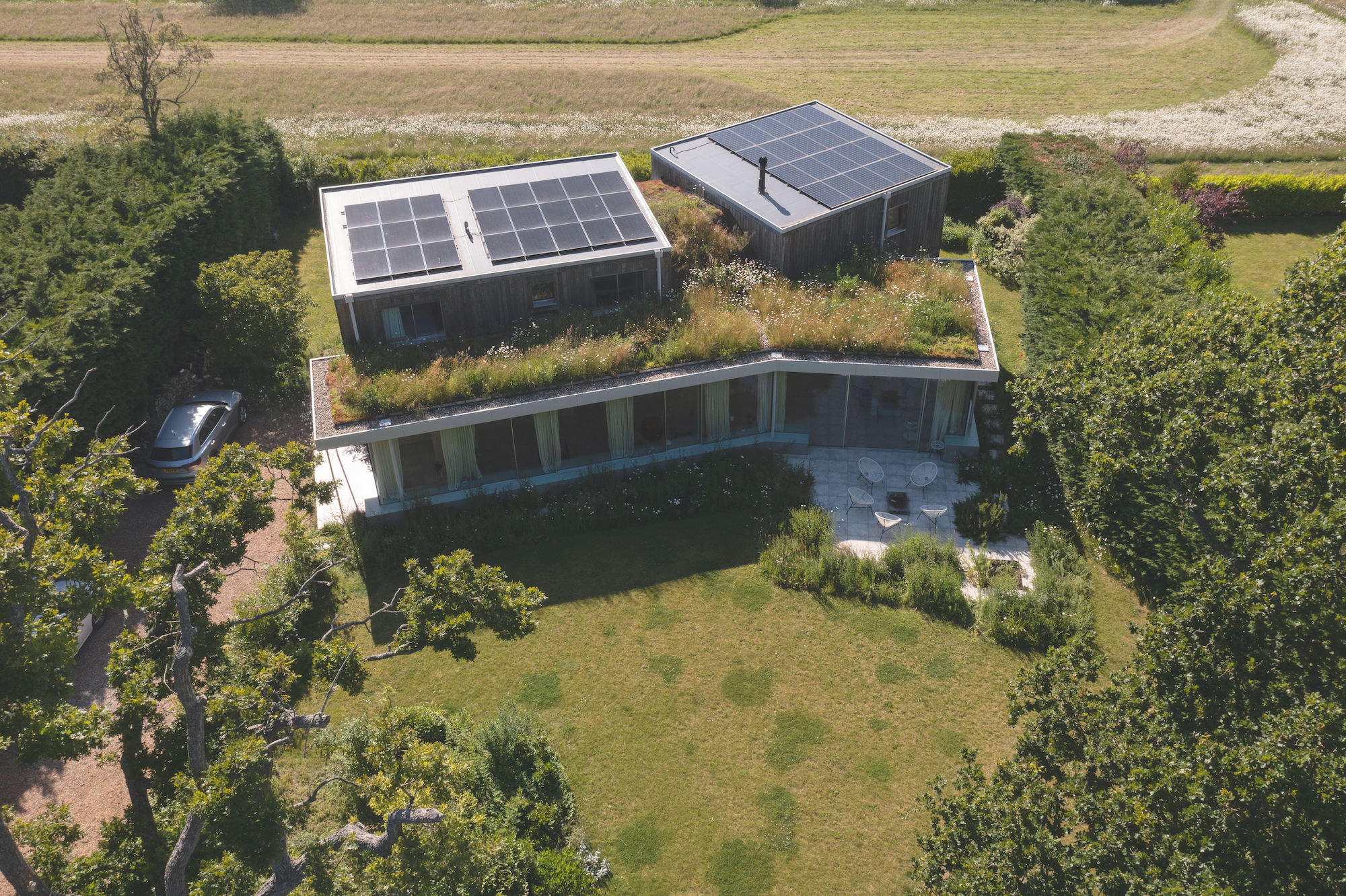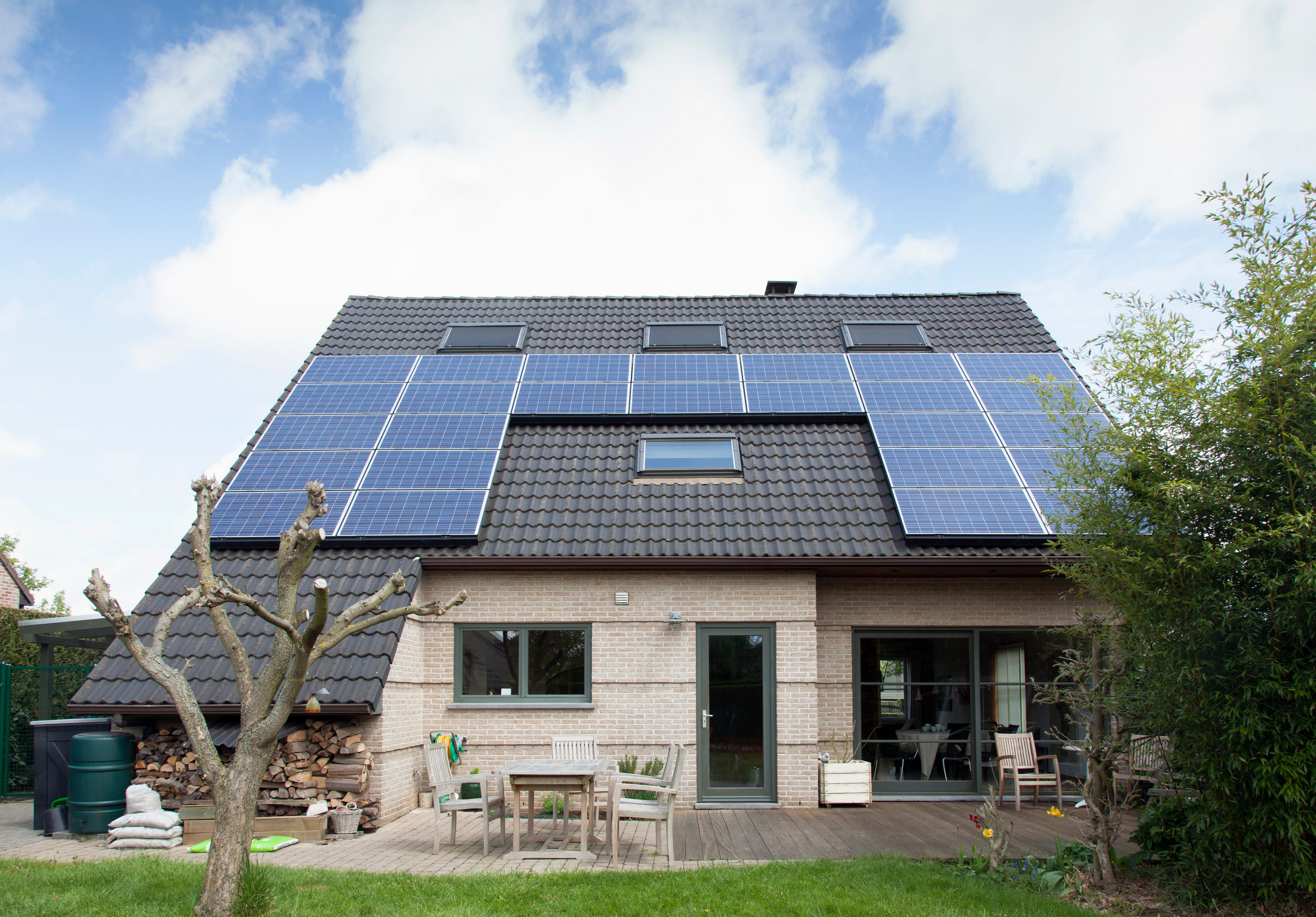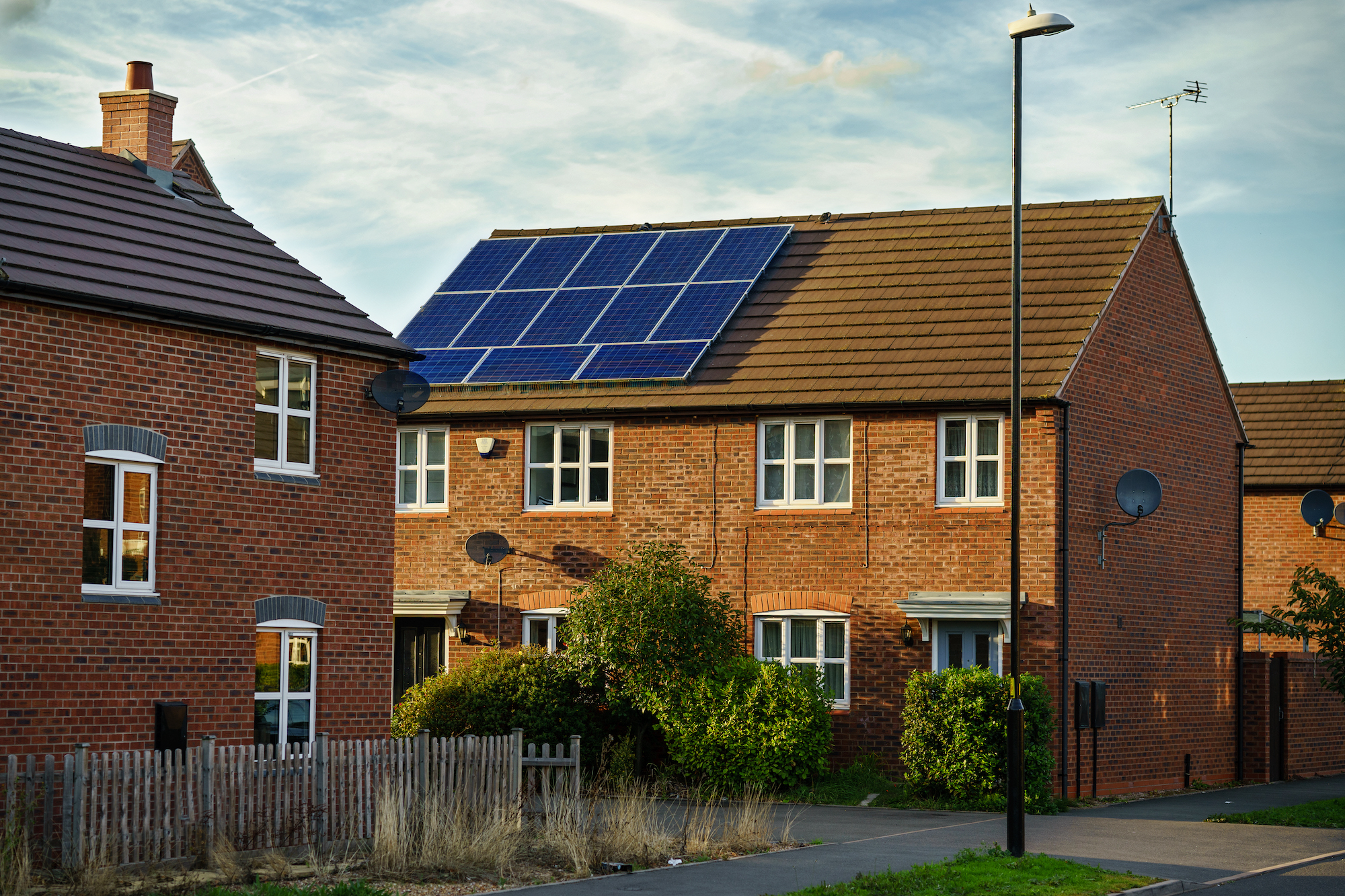Solar panel grants: What funding is available right now?
Solar panel grants can help reduce the upfront cost of this renewable tech. Find out what grants are currently available, if you're eligible and how to apply

Using solar panel grants to subsidise the upfront costs of solar PV or solar thermal panels is a smart approach.
Investing in solar panels and other eco credentials can be a costly affair; so investigating potential savings using local or governmental grants and funding before you begin can help maximise your budget.
We've gathered together all of the available grants across the country right now, and explained eligibility and how to apply for each one.
Solar panel grants: What you need to know
Installing solar panels, while not the only option to increase your home's eco credentials, was very popular a few years ago. Government incentives and grants made this investment very enticing, and homeowners who seized the chance are now also benefitting from renewable energy, softening the effects of the current cost of living and home energy crises.
Chris Lovatt, chief operating officer of E.ON Energy Infrastructure Services says : "A solar energy system can be used to power your home, charge an electric vehicle, or both — and it's kind to the planet and your wallet. Solar energy and battery storage can help reduce your household's impact on the environment, helping you be more sustainable at home as well as slashing your electricity bill by up to £705 per year."
While options for funding like the Green Homes Grant, Renewable Heat Incentive and the Feed-in Tariff were once available, there are now fewer grants promoting solar panel installation. That said, the capital cost of solar panels has also reduced in recent years.
"An average domestic solar system cost between £12,000 and £16,000 in 2010 but it is more like between £5,000 and £8,000 today," says energy efficiency expert and renewable tech installer David Hilton of solar photovoltaic panels (which generate electricity).
While a typical solar thermal system (which generates heat for hot water) might cost between £4,000 and £7,000, depending on your requirements.

Can I get a grant for solar panels?
There are some grants currently available to reduce the capital cost, including the ECO4 scheme, Smart Export Guarantee and LA Flex.
Below we have collected together the solar panel grants currently available for homeowners in the UK. Note that not all homeowners are eligible for all of the below.
1. ECO4
The Energy Company Obligation (ECO) was launched in 2013 by the government in an effort to encourage various heat-saving measures, including solar panel installation. It provides full or partial funding. The current amendment, ECO4, applies to measures from 1 April 2022 and will continue to cover the UK until 31 March 2026.
Homeowners must meet certain criteria (for instance, qualifying for pension or universal credit, income support or housing benefit) and the house must have an EPC rating below D.
"The government has committed to support for low income/fuel poor households as part of their strategy to reach net zero by 2050. The ECO4 Scheme will cover the period between 1st of April 22 until the 31st of March 2026," explains John Burchill, sales director from East Riding Energy.
"The main objective of the scheme is to reduce household heating costs by improving the least energy-efficient housing stock occupied by low income and vulnerable households. Local authorities can refer private tenure households under this scheme."
"East Riding Energy is seeing typical domestic savings of between £500 and £1,500 per household," says John Burchill.
To find out if you qualify or to apply, contact any of the suppliers involved with the scheme or look for impartial energy advice from the government's improve energy efficiency page.
2. LA Flex
If you do not receive benefits but are considered 'low income', the Local Authority (LA) Flex provides flexibility to local councils to examine the criteria of ECO4. To be eligible, your household income must be £30,000 or less, but other criteria apply, such as how many people live in the house or certain health issues.
3. Smart Export Guarantee
This government-backed initiative requires some electricity suppliers to pay small-scale generators, such as households with solar panels, for low-carbon electricity. This electricity is exported back to the National Grid.
Anyone with solar PV (photovoltaic) panels with a capacity of up to 5mW (a typical domestic system) may be eligible and there is now set tariff minimum. The tariffs, which are determined by the electricity supplier must not be lower than zero, and can be fixed or variable.
"Under the Smart Export Guarantee (SEG) Feed in tariffs are currently very low at 4p per kW, however I expect better export prices to become available in the next year," John predicts.
The tariff is paid for unused electricity exported to the Grid, however, given the low rate, at present, it is often better to use this generation within your own home than export it.
Furthermore, if you already benefit from the Feed-in tariff (which is no longer available for new participants, see more below), your household won't be able to receive payments for both this and the Smart Export Guarantee.
4. 0% VAT
As of April 2022, materials and installation costs of energy-efficient measures such as installing solar panels is rated 0% VAT. This could save the typical home around £250-£400 on installing solar panels.
The zero VAT will only be available for five years, meaning that in 2027 the VAT rate will return to 5%.
5. Local grants
Different counties offer different levels of grants for solar panels and will require different eligibility criteria. Check your local council's website for more information.

Are solar panels worth buying without a grant?
"Solar panels can be a worthwhile investment, however, we must bear in mind the fact that they are most useful in the summer, they do not reduce the demand for space heating, they do not improve thermal comfort, they don't prevent draughts, nor do they improve indoor air quality.
"On the basis that space heating and hot water account for about 60% of the average homes carbon emissions, shrewd homeowner invested in energy efficiency before installing solar panels," says architect Mark Siddal, founder of LEAP Architects.
While investing money in insulating your home is arguably a better investment, solar thermal and solar PV panels are certainly helping to cushion the effects of rising energy bills, particularly when combined with battery storage (in the case of PV), and particularly in the summer months.
Want to know more? Energy expert David Hilton has written an honest review of what's it like living with solar PV panels and if they're really worth it.
Can you get solar panels for free?
Until 2019, UK homeowners could install solar panels for 'free' but such schemes are no longer running. When the Feed-in Tariff (FiT) scheme was at its height, companies would pretty much install solar PV panels without homeowners having to lift a finger or pay a penny — effectively 'renting' your roof space.
However, whilst the homeowner typically received a 'free' solar panel installation and 'free' generation, the big caveat was that the companies involved benefitted from the FiTs payments.
What solar panel grants used to be available?
At one point, solar panel grants were very enticing, and included:
Green Homes Grant
The Green Homes Grant closed for applications on 31 March 2021, having only been available from the previous September.
Most homeowners were eligible and could apply for vouchers worth up to £5,000 to make energy efficient improvements. While solar thermal panels were included, solar PV was not.
Renewable Heat Incentive
The Renewable Heat Incentive (RHI) scheme closed for applications on 31 March 2022. The RHI was focused on heat-generating renewables, with homeowners installing solar thermal panels – more specifically, flat plate and evacuated tubes producing hot water – eligible for payment.
The government launched the Renewable Heat Incentive in 2014, and would pay quarterly payments of 20.66p/kWh for seven years.
The Boiler Upgrade Scheme was designed to replace the Renewable Heat Incentive, but doesn't cover solar panels.
Feed-in Tariff
The Feed-in Tariff scheme, which launched in April 2011, closed to new applicants on 19 April 2019. The Feed-in Tariff, which is paid for each kWh of electricity generated, regardless of what happened to that electricity, for a period of 20 years.
At one point the Feed-in Tariff paid homeowners 44.19p/kWh, but dropped to 3.93p/kWh towards the end.
The Smart Export Guarantee is the natural successor from this scheme.
Get the Homebuilding & Renovating Newsletter
Bring your dream home to life with expert advice, how to guides and design inspiration. Sign up for our newsletter and get two free tickets to a Homebuilding & Renovating Show near you.
Amy is an interiors and renovation journalist. She is the former Assistant Editor of Homebuilding & Renovating, where she worked between 2018 and 2023. She has also been an editor for Independent Advisor, where she looked after homes content, including topics such as solar panels.
She has an interest in sustainable building methods and always has her eye on the latest design ideas. Amy has also interviewed countless self builders, renovators and extenders about their experiences.
She has renovated a mid-century home, together with her partner, on a DIY basis, undertaking tasks from fitting a kitchen to laying flooring. She is currently embarking on an energy-efficient overhaul of a 1800s cottage in Somerset.

